Abstract
The transit of indole-3-acetic acid through 20-mm sections of corn coleoptiles can be separated from processes involved in the uptake of auxin by the section and the exit of auxin from the section. Aerobic sections are supplied with an exogenous source of 14C IAA for a limited time, and after the source is removed, a pulse of 14C IAA moves down at 12 to 15 mm/hour. After transfer to nitrogen, movement of the pulse at the aerobic rate persists for about 10 minutes; thereafter drops to only 1 to 2 mm/hour and remains at this level during the next 4 hours. Within 2 hours, 70% of the total 14C in aerobic sections has moved 10 mm or more down the section from the position of the initial peak, whereas after the same time in nitrogen less than 10% of the total 14C has moved as far.
During the migration down the coleoptile, the peak of radioactivity becomes broader and less distinct. This dispersion is more rapid in aerobic than anaerobic sections, but appears to be nonpolar and to occur along the existing concentration gradients. Diffusion probably contributes to this dispersion.
In both inhibited and uninhibited sections, the movement of the peak, in contrast to its dispersion, is A) polar (downward) and B) independent of existing concentration gradients. Thus transit within the section possesses the fundamental properties of the overall transport system. The reduced amount of transport in inhibited sections is more likely maintained by glycolysis than by a low level of aerobic respiration dependent on the residual oxygen in the tissue.
Full text
PDF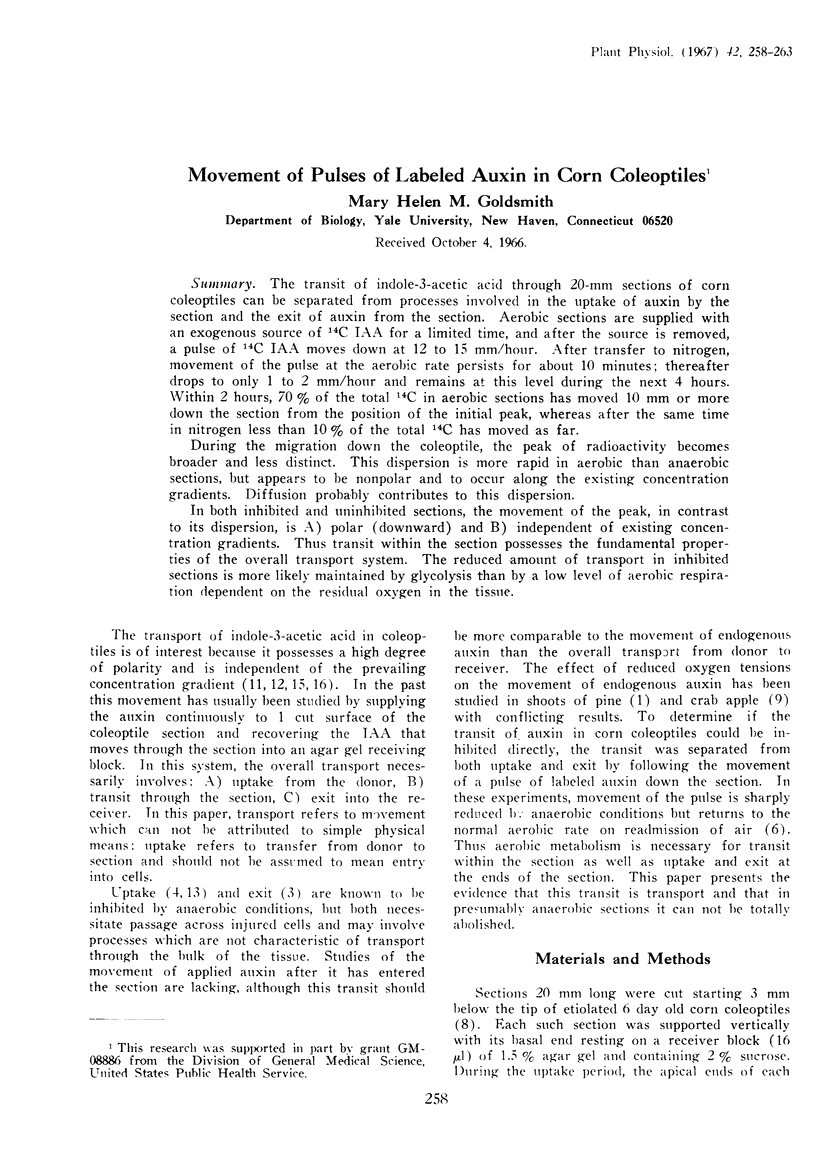
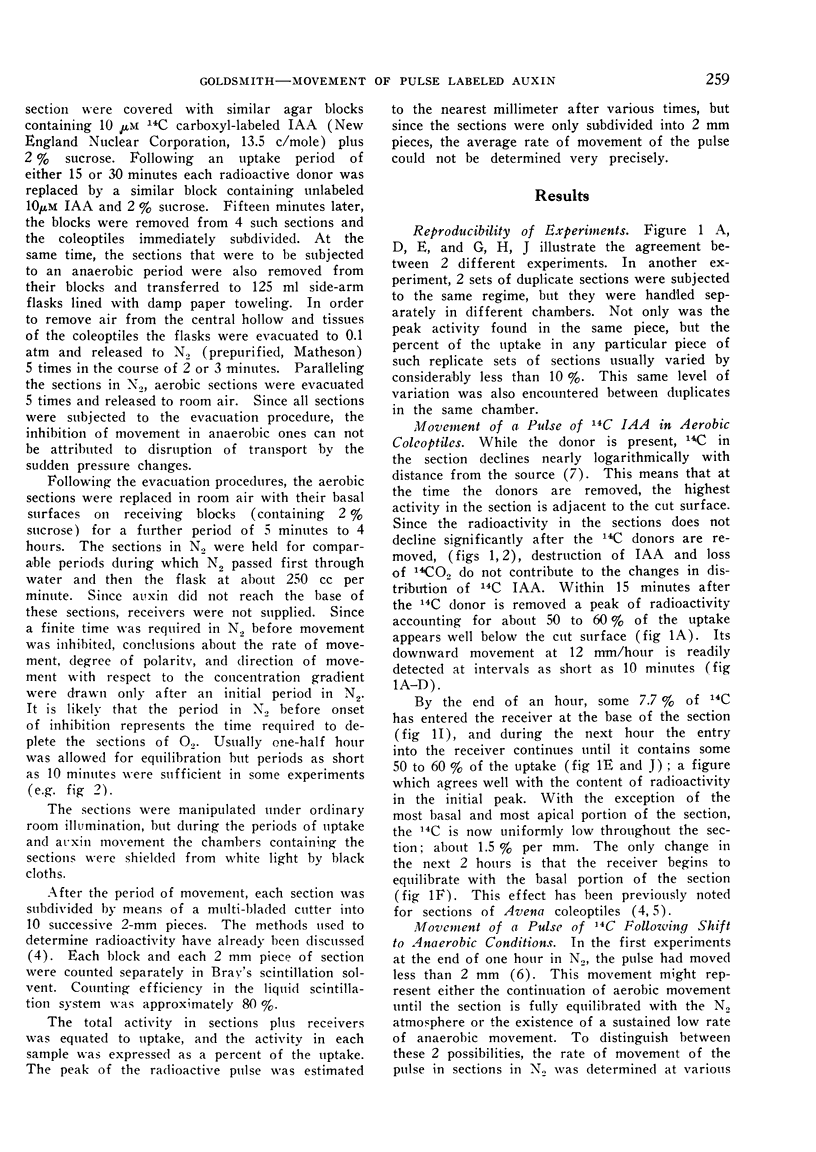
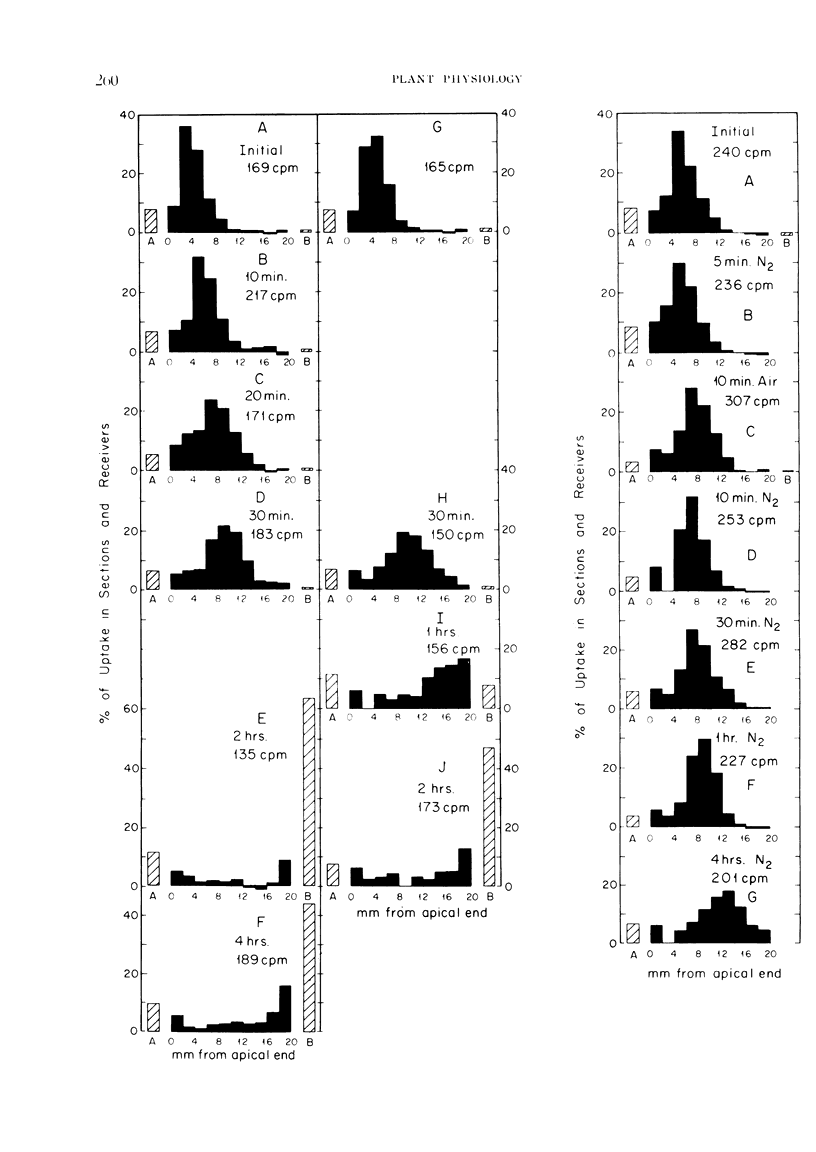
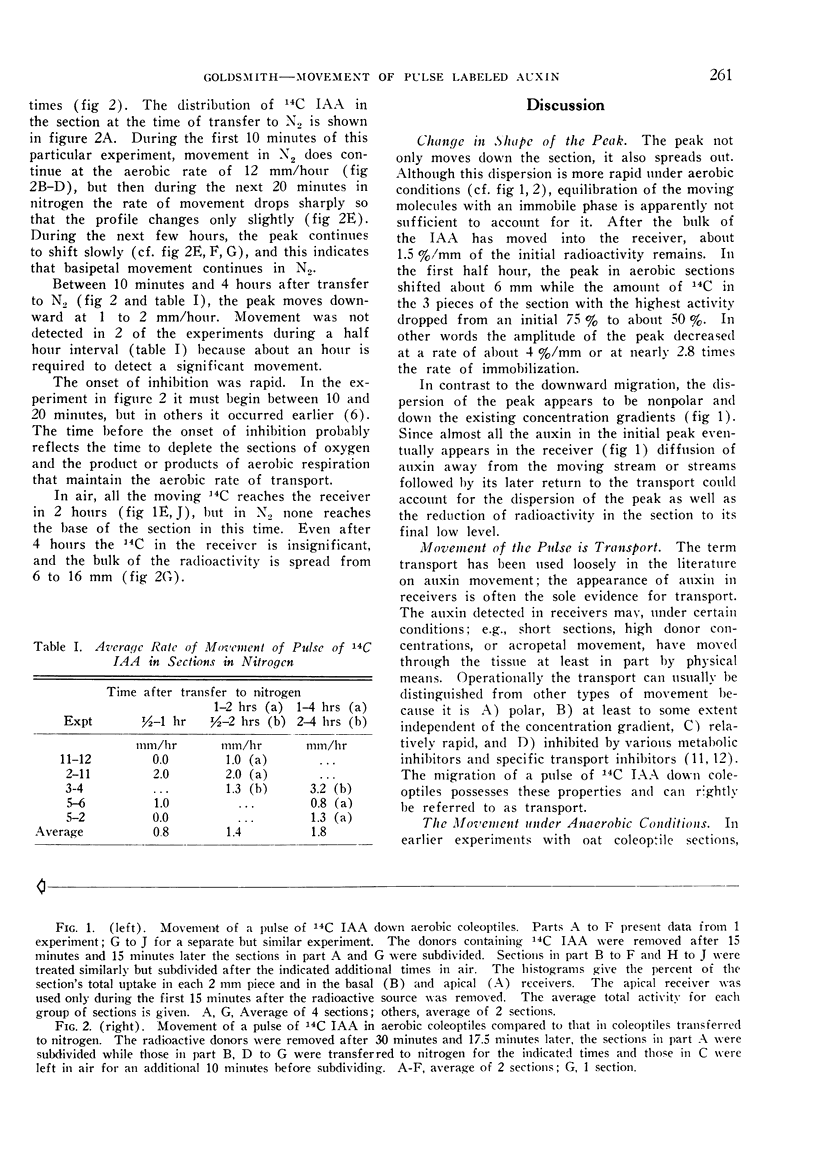
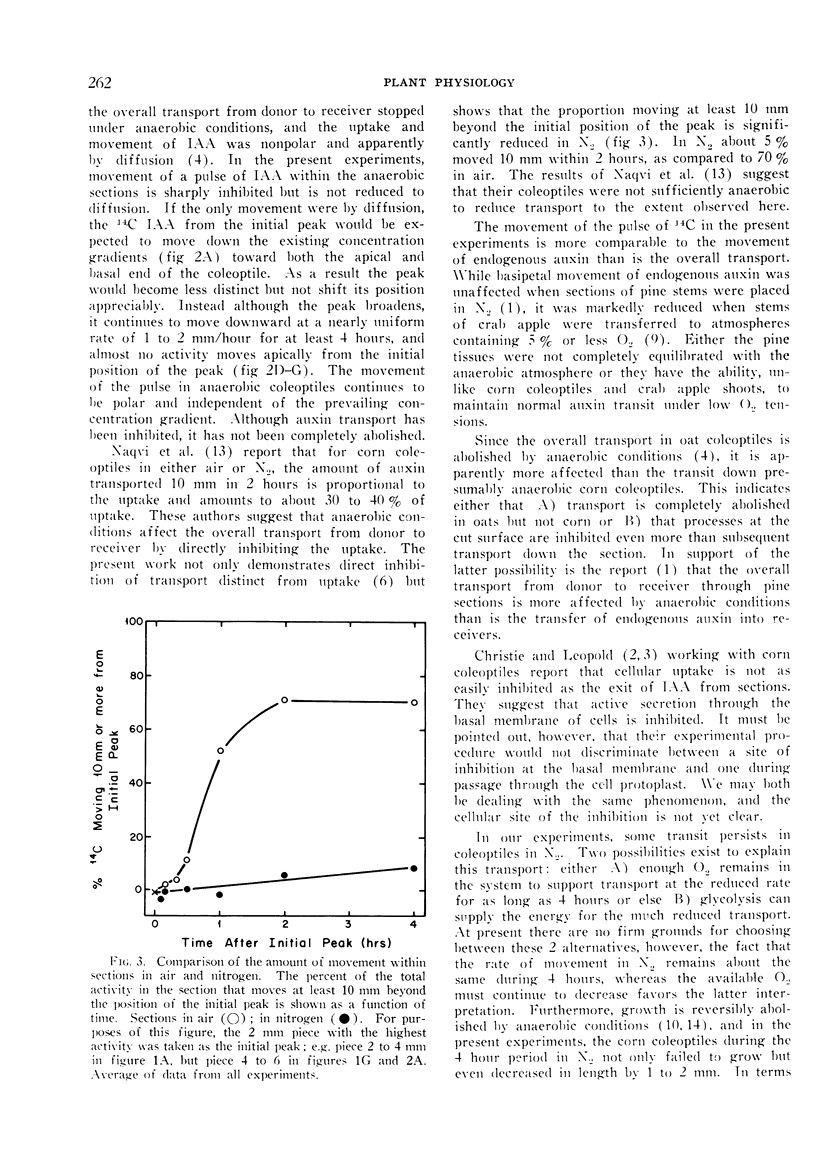
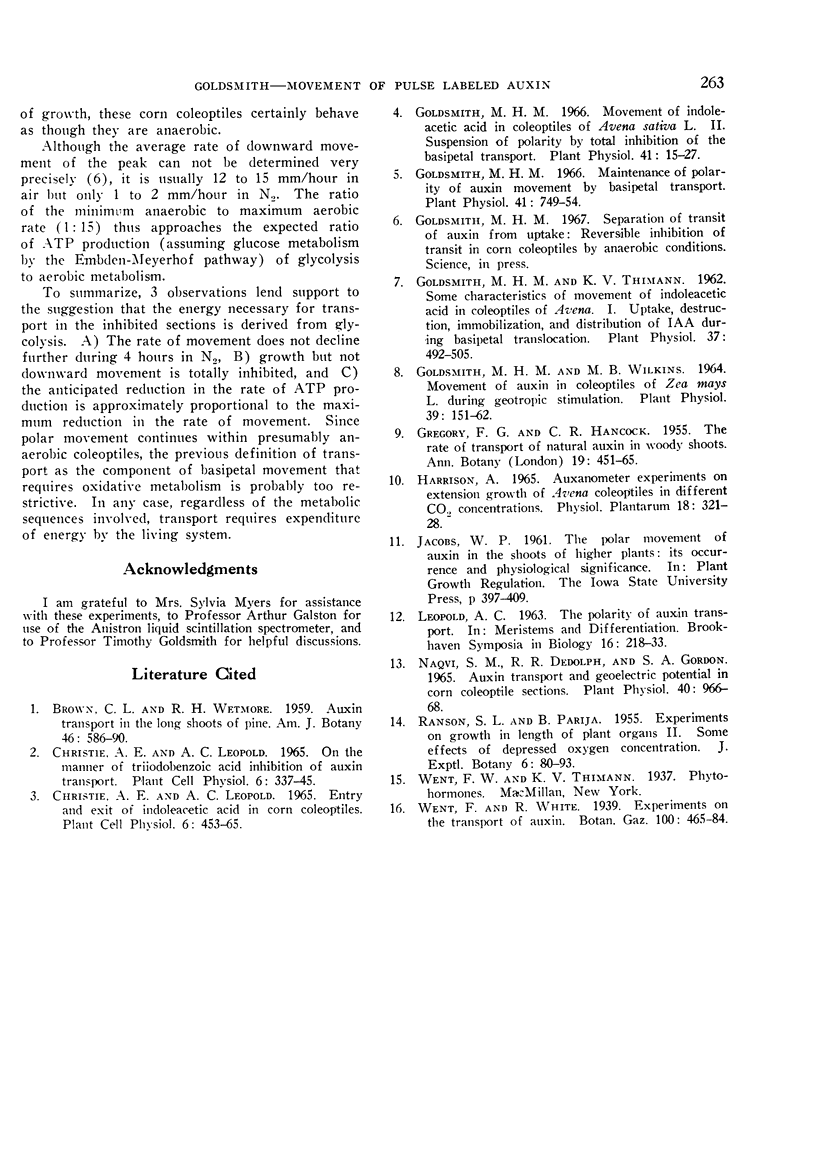
Selected References
These references are in PubMed. This may not be the complete list of references from this article.
- Goldsmith M. H. Maintenance of polarity of auxin movement by basipetal transport. Plant Physiol. 1966 May;41(5):749–754. doi: 10.1104/pp.41.5.749. [DOI] [PMC free article] [PubMed] [Google Scholar]
- Goldsmith M. H. Movement of indoleacetic acid in coleoptiles of Avena sativa L. II. Suspension of polarity by total inhibition of the basipetal transport. Plant Physiol. 1966 Jan;41(1):15–27. doi: 10.1104/pp.41.1.15. [DOI] [PMC free article] [PubMed] [Google Scholar]
- Goldsmith M. H., Wilkins M. B. Movement of Auxin in Coleoptiles of Zea mays L. during Geotropic Stimulation. Plant Physiol. 1964 Mar;39(2):151–162. doi: 10.1104/pp.39.2.151. [DOI] [PMC free article] [PubMed] [Google Scholar]
- Helen M., Goldsmith M., Thimann K. V. Some Characteristics of Movement of Indoleacetic Acid in Coleoptiles of Avena. I. Uptake, Destruction, Immobilization, & Distribution of IAA During Basipetal Translocation. Plant Physiol. 1962 Jul;37(4):492–505. doi: 10.1104/pp.37.4.492. [DOI] [PMC free article] [PubMed] [Google Scholar]
- LEOPOLD A. C. THE POLARITY OF AUXIN TRANSPORT. Brookhaven Symp Biol. 1964 Mar;16:218–234. [PubMed] [Google Scholar]
- Naqvi S. M., Dedolph R. R., Gordon S. A. Auxin Transport and Geoelectric Potential in Corn Coleoptile Sections. Plant Physiol. 1965 Sep;40(5):966–968. doi: 10.1104/pp.40.5.966. [DOI] [PMC free article] [PubMed] [Google Scholar]


